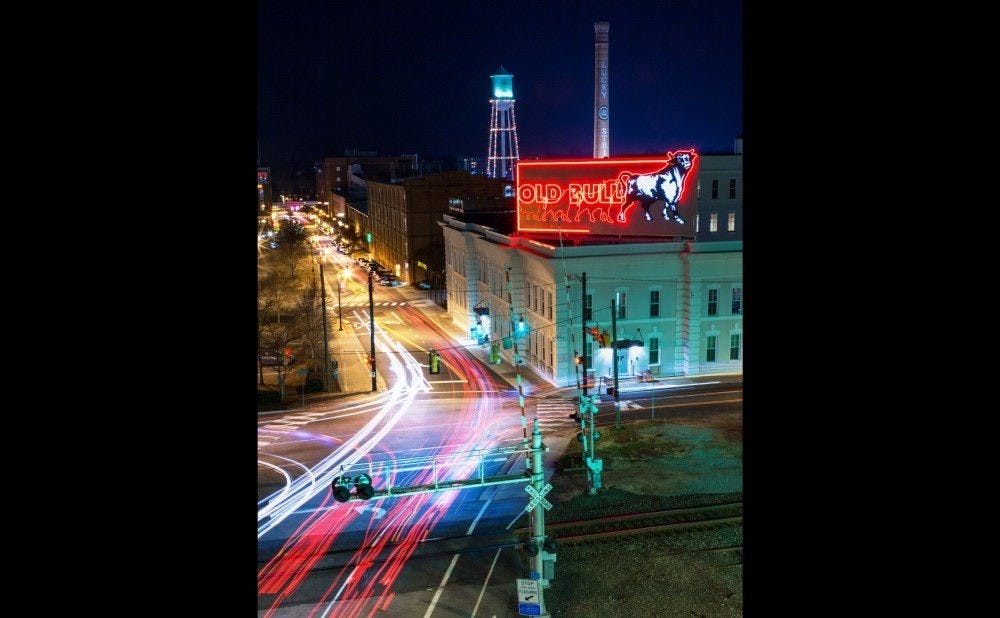Durham and Mayor Steve Schewel want you to ditch your car, and they have $1 million to help do it.
Durham has traffic and parking troubles. According to Sherlock, 24,788 people work downtown, of whom only 2,000 do not drive to work. There are about 15,000 parking spots for the rest, and new parking decks cost $23 million.
Congested streets make things worse. A rapidly growing population adds to the problem.
“We need to find a solution,” Schewel said. “We need to have more people coming downtown in modes that are not single-occupancy cars.”
The city recently won the $1 million in Bloomberg Philanthropies’ Mayoral Challenge, which challenges cities to find creative answers to problems. For Durham, the problem was road congestion coupled with a growing population, and Durham worked with Duke’s Center for Advanced Hindsight to devise a plan.
Durham says that 8 percent of people take transit, walk or bike to work, and thinks it can get its residents to commute in other ways than via car before congestion from a burgeoning population forces them to.
The city's exact plan remains to be seen—it's still in the testing phase. Some ideas that have been tested include personalized commute maps and giving out a weekly lottery entry for every time riding the bus.
Its prize money will allow it to continue searching for ways to convince residents to ditch their cars. When scaled, the project could lead to 9 million fewer miles driven downtown, $5 million saved across Durham on car-related costs and over 3,500 fewer metric tons of carbon dioxide released each year, according to Joseph Sherlock, senior behavior researcher at the Center for Advanced Hindsight who worked on the project.
The city and the Center for Advanced Hindsight developed and fielded many ideas. After Durham advanced to the competition finals, they recruited 1,600 city employees to test the prototypes. One offered personalized commute maps, which included options for driving, biking, walking and public transit. Another offered cash as well as the maps—every time they swiped their bus card, they were put into a weekly lottery.
“We think people intend to commute the alternative means but aren’t very good at following through on that intention.” Sherlock said. “So what we wanted to do was make it easier for people to follow through on that intention.”
It worked. After receiving personalized maps, fewer people reported always driving to work. And combining the map with cash had a larger effect—even fewer people always drove to work, and five times more people rode the bus instead.
“We also found that people in the treatment groups reported being happier when commuting,” Sherlock said. “They were more likely to exercise in their commute, and they reported spending less.”
Schewel and Sherlock said that the project won’t yet be applied to all of Durham. Instead, they will use their prize money to keep developing and testing new ideas.
As they tinker with traffic plans over the next three years, Durham residents may have the following policies to look forward to: parking fees that increase with each use, parking spot buybacks for downtown employees, and a “Tinder for cars” to match drivers and riders with similar interests and destinations.
Get The Chronicle straight to your inbox
Sign up for our weekly newsletter. Cancel at any time.

